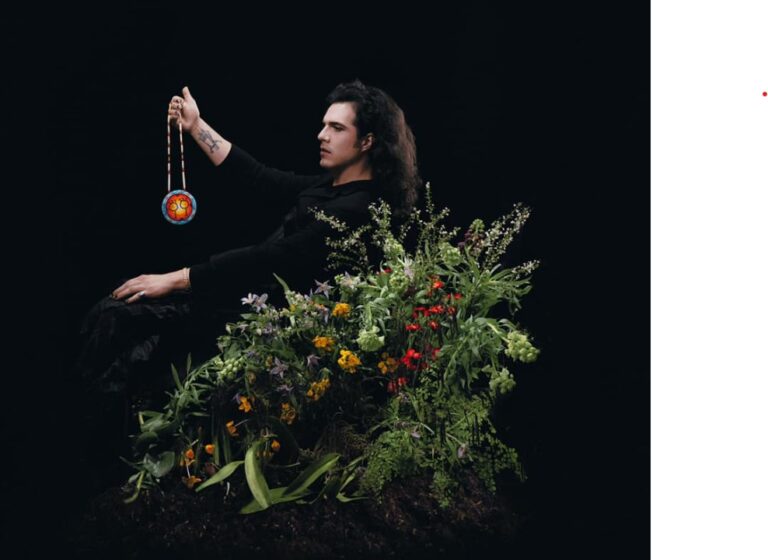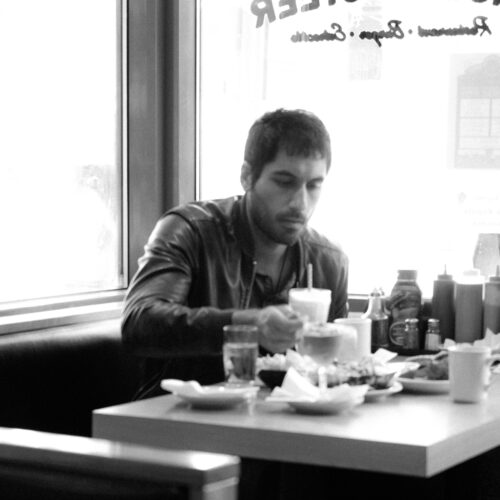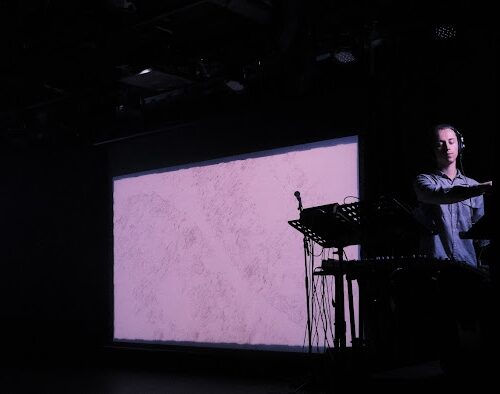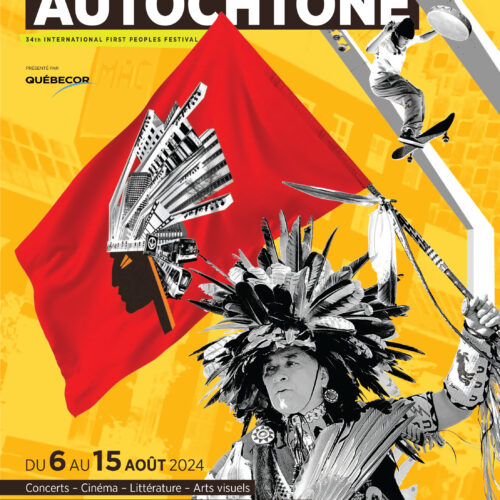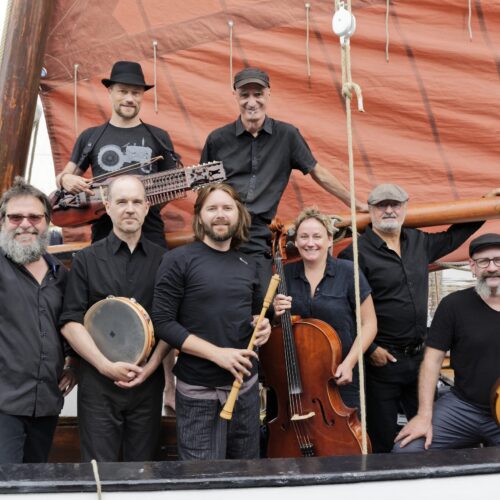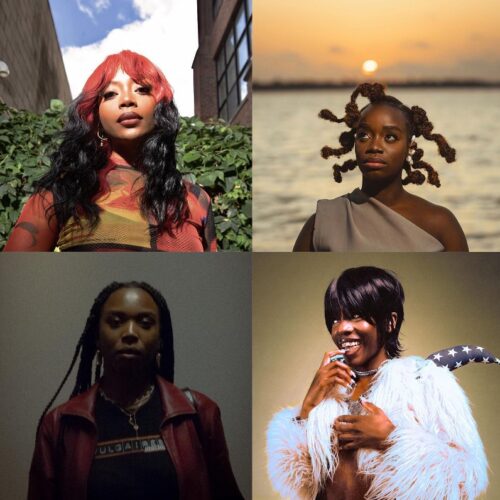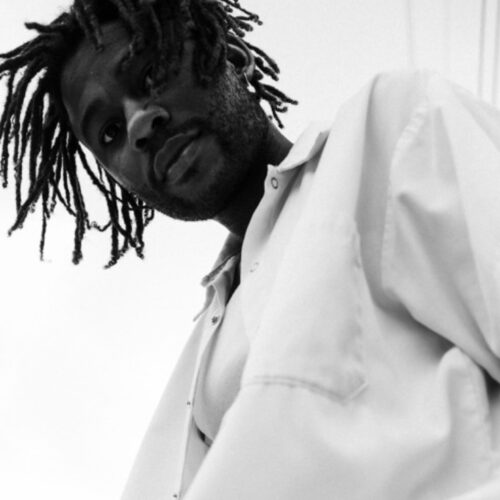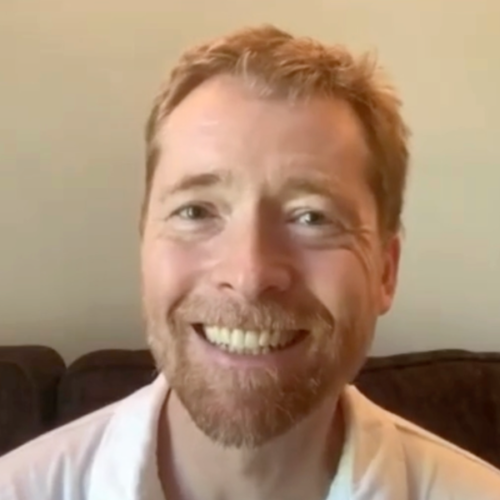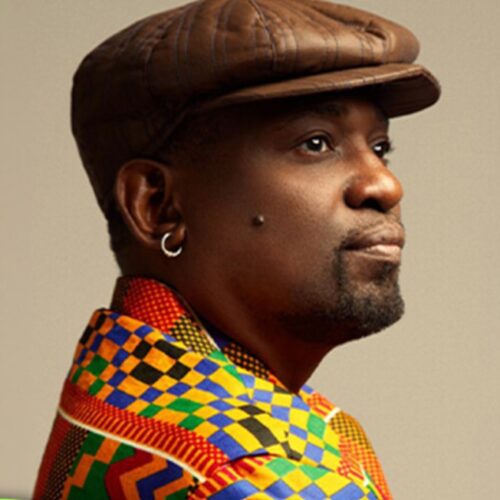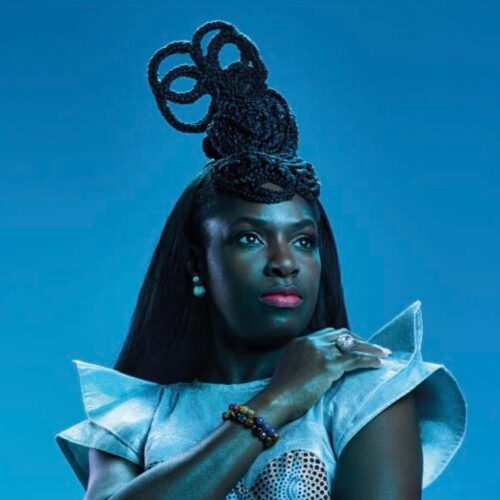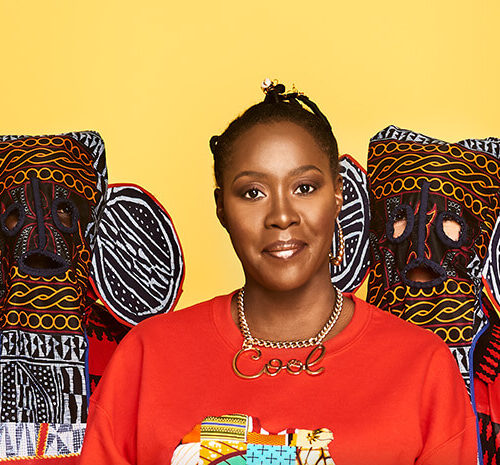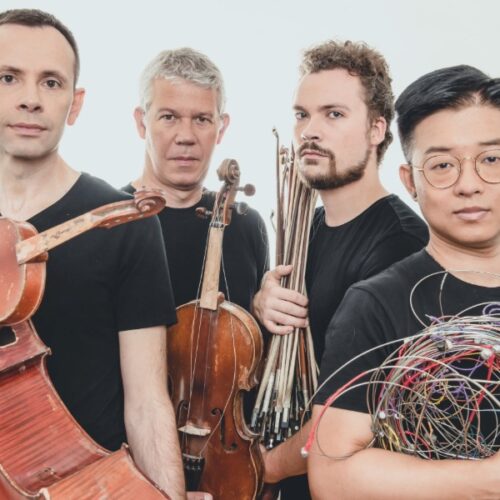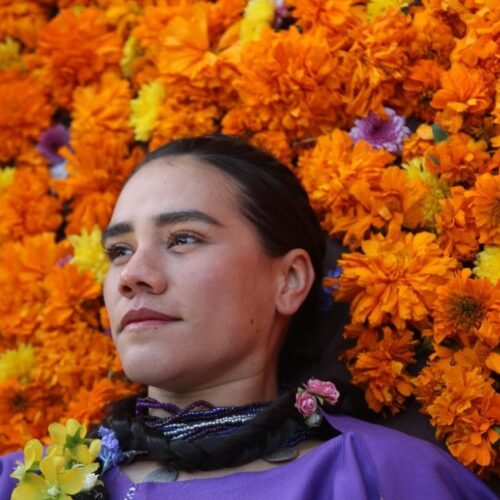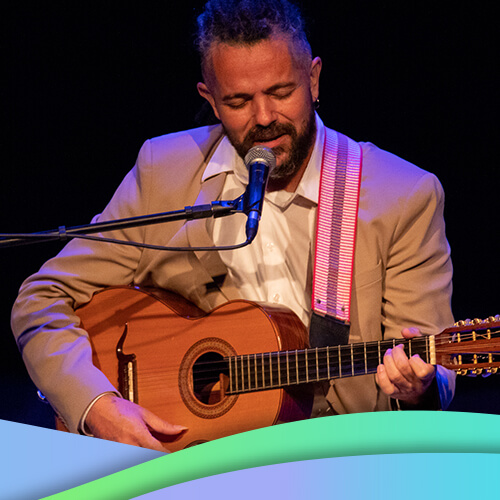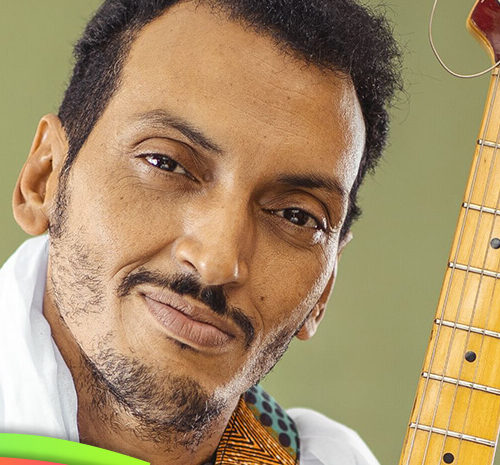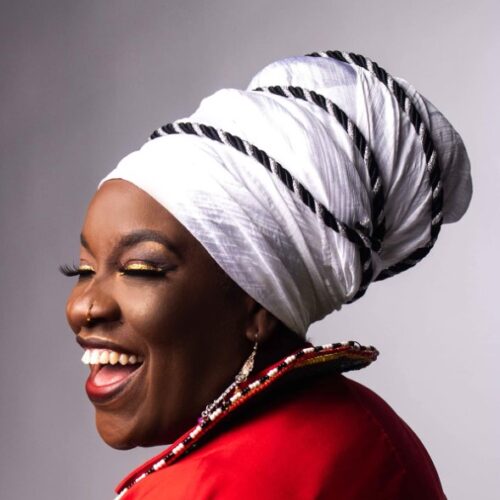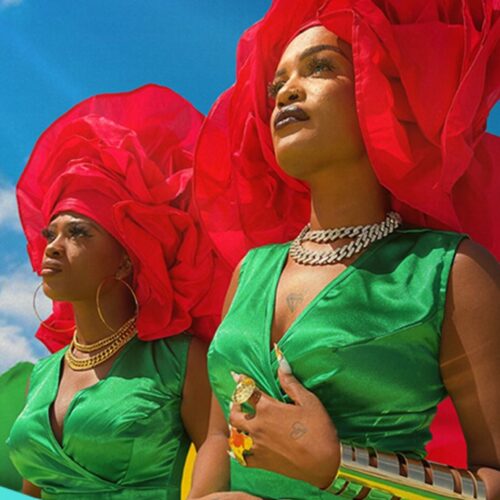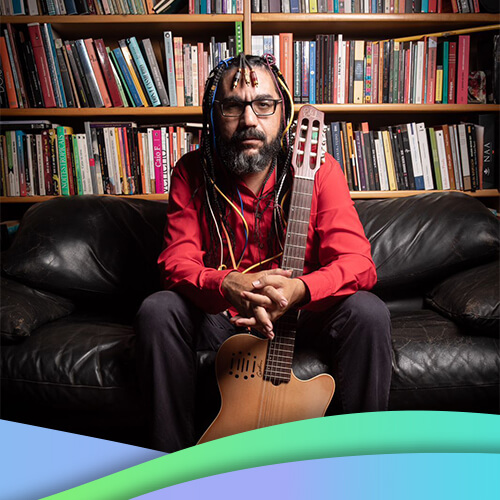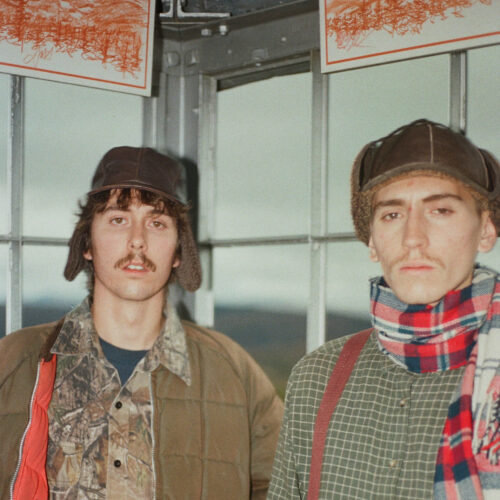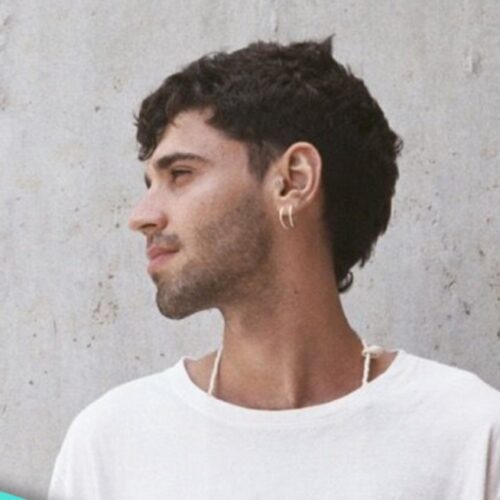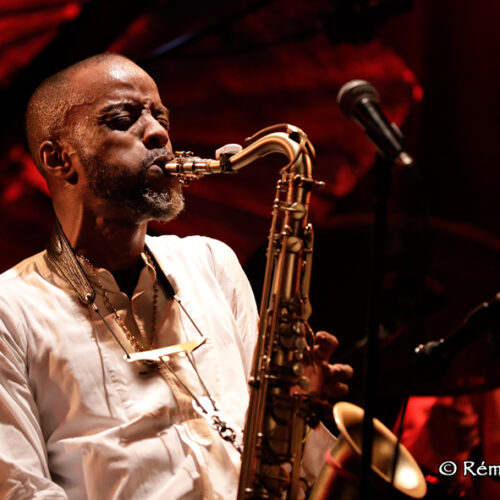Additional Information
The second chapter of his inspiring path, Motewolonuwok, was first inspired by a poem by Cherokee writer Qwo-li Driskill. “From the heavy wreckage of loss, we emerge together”. Jeremy Dutcher sings in Wolastoqey, his mother tongue native language, without any backward-looking attitude.
Classically trained as a tenor singer, Dutcher achieved a multi-referential music and songwriting through an exploration of contemporary indigenous identity, more precisely Wolastoqiyik Wahsipekuk Nation – New Brunswick, Quebec and Maine, along the Wolastoq river – St.John river according to the colonizer official name. His reinvention of his own cultural heritage, mixing it with western classical music, jazz, electronic music or chamber pop, is simply brillant.
Jeremy Dutcher’s 2018 debut album, Wolastoqiyik Lintuwakonawa, won the Polaris Prize and a JUNO Award. Without a doubt, it’s now a reference album for Canadian contemporary culture. On this new recording, He sings also in English because he sees this bilingual choice it as « a powerful invitation to collective healing and understanding, a direct line of communication to convey his community’s stories of healing, resilience and emergence to all who listen. »
Reached in Paris, where he was touring last October, Jeremy Dutcher granted PAN M 360 a long interview that we put online just before his new concert.
PAN M 360 : How are you doing?
Jeremy Dutcher : I’m doing fine, man. Greetings from Paris. Cool. How are you doing?
PAN M 360 : Very good. About Paris?
Jeremy Dutcher : Oh my God, this is fantastic! I mean, the city is amazing. I just did a radio interview. We’re kind of doing some press for the new album all over here. And I have a show in a very intimate venue, L’Accord parfait, in the 18th arrondissement.
PAN M 360 : You know, my partner and I we did a 3 weeks road trip through your homeland in New Brunswick and also Nova Scotia. And when I was driving and resting in your area, I thought about you and your previous record.
Jeremy Dutcher : Nice! Well, especially from the first album. That music is so connected to where I come from. I’m glad you got to experience the beauty of that area.
PAN M 360 : Further in Nova Scotia, we had a few brief but nourishing conversation with Mi’gmaq people in Cape Breton. Also visiting some museums, we’ve acknowledged some aspects of your heritage and of course the legitimate concerns of First Nations in the Maritimes.
Jeremy Dutcher : They’re very nice people over there. I’m glad you get to hang out with them.
PAN M 360 : Yeah, we learned things !
Jeremy Dutcher : It’s eye opening. I hope every time that non indigenous people engage with indigenous people they get a new perspective. Look at the place and the space in a different way.
PAN M 360 : Well, probably we are late in this process, but at least some of us changed their mind about our history. Because we, French Québécois, were oppressed by English for a couple of centuries, we tended to forget or ignore that we were at first colonizers when we came to this continent.
Jeremy Dutcher : Well, don’t worry, guys like me are here to remind people it’s okay. It’s like taking the guilt away from that conversation, because we’re all now here on this continent together.
PAN M 360 : Yeah. We have to live together now.
Jeremy Dutcher : That’s it. Nobody’s going back to France or Europe, maybe just to visit, but nobody’s going anywhere. In Canada, we’re here together, and we got to figure out a pathway forward.
PAN M 360 : Exactly. And we’ve got to share the culture of each and mix, we have to embrace your culture and vice versa.
Jeremy Dutcher : Yeah but, that’s the thing, too. I think indigenous people have been doing the vice versa for a very long time. On the other side, that wasn’t exactly the case. When Europeans first came to North America, they thought we had nothing to teach them. They thought they had everything to teach us because they were Christians.
PAN M 360 : Yep.They thought Christian religion was the best. And their superiority with the weapons (guns) made them feel they were more civilized than indigenous peoples.
Jeremy Dutcher : Yeah, but I think it was more than this, it was also an ideology. For example, take feudalism, kings and queens, uptight hierarchy, frontiers, this is not really something we had. This is kind of a very different ideology than we have in our social structures. But yes, it is for sure the weapons, and it is for sure the Christianity..
PAN M 360 : Of course, First Nations social structures were already a pre democratic concept.
Jeremy Dutcher : Yeah! We may have even invented the thing !
PAN M 360 : When I was a teenager in the 70’s, I remember reading « The Origin of the Family, Private Property and the State », an essay by Friedrich Engels published in 1884, based on Karl Marx’s notes on Lewis Henry Morgan’s anthropological studies of traditional societies.There was a substantial part about Iroquois society structure and it’s progressive qualities regarding democratic participation and matriarchy.
Jeremy Dutcher : Wait, what? Engels wrote about indigenous society ?
PAN M 360 : Of course, yeah.
Jeremy Dutcher : Oh, my God. You’re blowing my mind right now. Thank you! I’m going to go look this up right now.
PAN M 360 : You’re quite welcome ! Now let’s talk about our main topic : you 2nd album.
Jeremy Dutcher : It actually came from my experience with the first album, the first album all in Wolastokey. I created that first album very much for my people and there were no translations provided. But understanding too that with the notoriety and the attention from the first record, a lot of non indigenous people also were listening too, for me it was about speaking to them in a direct way and telling our stories in a way that is going to make sense to them. And hopefully change their heart and impact their thinking about native people.
PAN M 360 : Yeah, your values have to be understood by anyone, beyond your people.
Jeremy Dutcher : We actually need that. What we’re missing right now is the context in terms of how we got to where we are in our society. In Canada, we always talk about the two solitudes, but this is not true, there’s so much more than that. Because if we understand that the differences within indigenous communities are fundamental based on our ways of thinking and knowing and that healing of our own ways is also hopefully going to invite other people who are non indigenous, into that way.
PAN M 360 : You’re absolutely right. We have now to share values and find a different path together.
Jeremy Dutcher : This is always a hope, our elders say it has always been a welcome song. And by that she means we’ve always been welcoming people. And that has never changed. Maybe sometimes to a fault, maybe too far, but we’ve always been that welcome and we can’t change that now. And really we say that for us, but we say that for everyone, which is to say that we don’t build walls.
And we’ve created this canadian pluralist society, Africans, Europeans, Asian people, indigenous people, the whole world then is gathered in Montreal, in Toronto, in these cities where we can actually get a lot of work done together because we’re there with each other. So I think it’s known that, as much as Canada can frustrate me sometimes, the potential is very high because the ways in which the world is gathered in these places is very unique. It’s not like that wherever you go in the world.
The vision of Canada was always or could have always been this inclusive, pluralist society. And now for the first time, we actually can build. We’re if we’re humble enough to say, oh, I don’t know or yes my ancestors fucked this all up, we can do right.
PAN M 360 : We may be not responsible of our ancestors, but we’re responsible of what we do now.
Jeremy Dutcher : Exactly. Yes. And it’s not about carrying this guilt or this blame forward, but it’s about empowering people. To make better choices.Go in better ways.
PAN M 360 : Obviously, this is the stream of your own path as a singer, songwriter and musician. So what did you do differently this time? I observe more choir music for example. There’s a lot of voices overdubs, I also see different kinds of music, even some jazz chords sometimes.
Jeremy Dutcher : Yeah, We’re going in many different directions with this one.
PAN M 360 : Can you describe it briefly?
Jeremy Dutcher : Yeah, for sure. With the first record, it was very small. There was just myself and a couple of strings and a couple of singers. It was a very kind of a small chamber ensemble. Now for the second one, I wanted to blow that up and expand it, take it all the way. So that string quartet is going to become a full orchestra and those couple of singers become the choir.
For me, the second record felt like a sonic expansion of the first album, but that’s either way, so it’s getting all the way big, but it’s also going all the way small. And for me, there’s a couple of moments on that record that are playing with the nuance and the small space and the delicateness of our stories, and then there’s other songs that are going way over the top and really being dramatic. So the truth is probably somewhere in the middle there. So I hope people can listen and find themselves in some of that music, if not all of it.
PAN M 360 : Yeah, and if we can be more specific, maybe we can pinpoint a few titles and just see how it was crafted.
Jeremy Dutcher : In the first record all the songs are based on the same source material. So they’re all kind of looking at the Ancestor songs. Now with this one, with the new record, it’s very kind of pulling and weaving together all of these different inspirations and kinds of influences. So it kind of does sound different and it came together in different ways.
So, for example, the first song on the record is called « Skicinuwihkuk » which is actually a phrase that I found when I was doing archival research on the first record. I found this quote, and the quote from the ancestor became the lyric for the song. So in that way, I didn’t do much. I wrote the music, of course, but I didn’t necessarily come with the lyrical content.
PAN M 360 : Can you explain the lyrical content of that song?
Jeremy Dutcher : So this means as long as there’s a child among my people, we will protect the land always and forever. When I introduce myself in my language, I might say I’m an indigenous person. Yeah. Sothis is the place of the native people’s land. For me, it’s like a statement of sovereignty. All those years back, that’s a quote from 1763, and they were still saying that same thing of like, we are here and we are protecting the land.
Throughout history, our people have stood up and said, no, actually, we’re going to protect this place and we’re not going to let you do that. I think about Oka, I think about Wet’suwet’en and all of these different sites where our people have stood up and said no, you’re not going to build a fucking golf course here or you’re not going to cut down all of these old growth trees. There’s something more important than development and consumption.And so I think yeah, we just have to keep reiterating that, because it’s clearly like, I think as a country, we have this way of putting the blinders on or turning away from stuff we know is wrong.
PAN M 360 : So this album is a true invitation to open up our minds.
Jeremy Dutcher : Yeah, but like I said, it’s always been a welcome song so it’s not about shaming anyone for not being with us. It’s an invitation to say we’re doing something else over here so you can come and hang with us. And we’ve got stories and we’ve got songs and we’ve got all this beautiful thing that we want to get you to know. So come and hang with us.
Now, if you contrast that to a song on the second half of the record called « The Land That Held Them » , it’s very much my words, talking about the hard reality that is often following us as indigenous people right now, but done and captured in a beautiful way. And so for that track, we have a brass quintet, and it’s all orchestrated by Owen Pallett. He kind of did all of these really lush, sick orchestral arrangements.
And so this is something that I’m a singer and a pianist, but I don’t really work with an orchestra in that way. And so kind of relying on the friends and community people around me to say, hey, what are you really good at ? Maybe you could come over here and do it. So it’s kind of drawing together all of these different influences.
PAN M 360 : And if we go on, let’s take one or two picks about other songs you’ve crafted because it’s very diverse, multi genre. It’s not only one kind of predictable indie pop, it’s very diverse.
Jeremy Dutcher : We musicians can sometimes put ourselves in a box to create something that’s maybe palatable or interesting for everyone. And it’s like, well, you’re never going to do that. So just create what you want to create and hopefully that’s going to connect. For me, it’s like weaving together all of those different musical aesthetics that I’ve been taught. Right. So it’s like the traditional element, the classical element, the choir element, bringing that in. For a song like « Sakom », which starts the second half of the record, it’s all a cappella voices, just singing.
And it’s the power of the voice and the power of collectivity and how that aids in our healing together when we sing together. I think this was kind of a unique one too because I knew I wanted the choir on that record. But are they a background, just a Greek chorus kind of like commenting on the thing? Or are they a real voice in the room on the record? For me, I wanted to give them almost the centerpiece of that record.
Because you know, it’s the least amount of music that’s being played and yet those voices kind of are centered and this choir is so beautiful. This is not an existing choir, these are just real friends of mine. I said, hey, come and sing with me. So there’s twelve people in that choir, coming from all different places, some from church choir, other people from music school, other people from jazz scenes. So it’s kind of a melee of all of these different ways of singing. But then they came together and sounded so beautiful together.
PAN M 360 : How were you involved in the production aspect of this album?
Jeremy Dutcher : It was kind of a coproduction of a me and a couple of people. So Owen Pallett really produced those string sessions and the band sessions, and then we had some post production together. My producer from the first record, actually a Montreal based producer named Buffalo, was involved in the post production as well and bringing it together. I also think about people like Basia Bulat. She’s such a nice person. She helped me write one particular song called « Take My Hand » and this one is really a co write experience between my friend and an elder back home and myself. And we all kind of wrote this together. So there are different collaborators on this record that brought it to fruition.
PAN M 360 : Do you perform a lot in your homeland?
Jeremy Dutcher : I don’t find myself there too much these days just because I’m on the road so much. I don’t have a home there. This is where my parents are and my brothers. Before 2026 comes. I want to have a little home in the woods in New Brunswick. But actually right now I spend my time in Montreal these days.
PAN M 360 : Oh, you live here permanently now.
Jeremy Dutcher : Yeah. I think it’s a good choice. I got to work on my French.
PAN M 360 : It will come naturally if you make the effort to do that. But we, French Québécois and others, should make an effort to learn indigenous languages too.
Jeremy Dutcher : There you go. Right? Because it’s about extending ourselves towards each other. You start to learn one indigenous language and then you understand, oh, this is related to all of the other ones around. It’s cool to see those connections. But now I’ll teach you one word in our language for now, and it’s just our word for merci and it’s wooliwon.
PAN M 360 : Cool! Wooliwon to you too!
JEREMY DUTCHER IS PERFORMING ON THURSDAY NOVEMBER 9 , BEANFIELD THEATER, 8 PM. INFOS & TICKETS HERE
